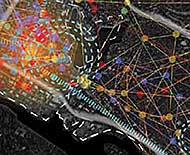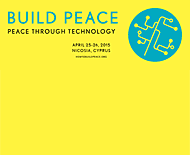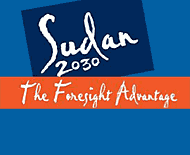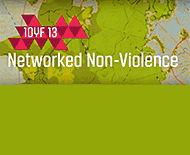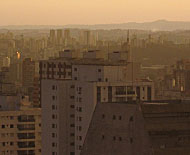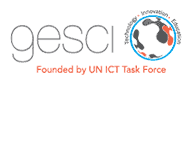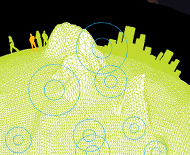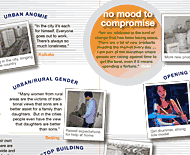
Peace + Development Lab
Pioneering a new process for inclusive and future-focused change
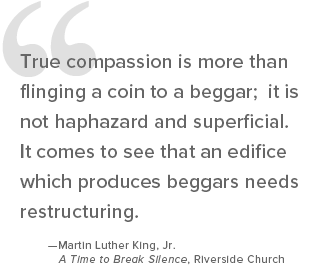
The recent launch of the Sustainable Development Goals (SDGs) is a key indicator of the changing environment international development and peacebuilding organizations are working within. The 17 goals are not just audacious in their breadth and aspirations, but signal a major shift. Today we find ourselves in a new era of partnerships, bottom-up discover and inclusion, and shifting power dynamics. Ubiquitous access to mobile phones and social media, co-creation hubs and fab labs, globally networked entrepreneurs, and new platforms for social change, to name are few, are shifting expectations for how and where development and peacebuilding happens. Yet, traditional institutions charged with building just, sustainable, and peaceful livelihoods around the world have yet to reconcile traditional methods with new realities.
How do we resolve this challenge? Co-creating shared futures across stakeholders and hierarchies is a fundamentally missing capacity within social change efforts. Until we can design our processes for social change so that they reflect our desired outcomes—equal access and participation, open and shared dialogue, power structures based on equity and respect, and shared community—we’ll never be able to shape our shared future towards just, sustainable, and peaceful livelihoods for all.
Participatory Futures Methodology
Through our participatory futures methodology we bridge the gap between experts, strategic decision makers, and beneficiaries.
Partnership Building + Participatory Strategy Workshops:
Using the future as a safe space to find common ground and explore shared futures, regional participatory futures workshops generate rich and nuanced datasets based on an analysis of current needs, emerging trends, and possible futures. The data from these workshops can be used by a wide range of organizations to generate locally relevant and flexible strategies for sustainable development and peace. Additionally, participants often shift from focusing on how external organizations can help them with immediate needs, to focusing on what is possible in the future and how they can begin making it so today.
Horizon Scanning + Signals Spotting
Through horizon scanning and signals spotting we map the shifting development and peacebuilding landscape practitioners need to consider before you design your interventions.
Internal Strategy Workshops:
What does the changing operating environment for traditional development and peacebuilding organizations look like? How is life “in the field” changing in ways that directly impact how we are able to build just, sustainable, and peaceful livelihoods for all? Using our Foresight to Insight to Action methodology we will work with your team of strategic decisions makers to uncover new opportunities and challenges for successfully engaging in international development and peacebuilding work into the next 10 years.
Key Projects
Key Past Events
- Futures Thinking for Development—Feb 22, 2016
Canberra, Australia
Tessa Finlev spoke with DFAT's innovationXchange about futures thinking as a development tool.
- Future of Development in the South Pacific—Feb 20, 2016
Canberra, Australia
Ben Oppenheim and Tessa Finlev participated in a full day design sprint hosted by Think Place to explore new models for business to support development outcomes in the Pacific Islands.
- Build Up comes to IFTF—Oct 27, 2015
Palo Alto, California
Helena Puig Larrauri, co-founder of Build Up and Build Peace visited IFTF and spoke about technology use in fragile environments, particularly what happens when external organizations introduce new technologies.
- Futures Thinking for Development—Oct 14-16, 2015
Washington, DC
Members of the Peace and Development Lab ran a pilot workshop with USAID’s Global Development Lab to test scenario planning as a tool for supporting sustainable development strategies.
- Peace | War Scenarios—Sept 6-10, 2015
Khartoum, Sudan
Peace and Development Lab team members flew to Khartoum to run a futures thinking for peacebuilding training as well as a scenario building process for grassroots and local peacebuilders. The scenario building process focused on developing two parallel scenarios: one on peace, and one on continuing conflict.
- Build Peace 2015—Apr 24, 2015
Nicosia, Cyprus
During Build Peace 2015 the team ran a 2-hour workshop to look at the future of peacebuilding and review some of the ways that futures thinking methodology can be used to support peacebuilding efforts.
- Innovation and Tech for Peace Workshop—Nov 5-6, 2014
Nairobi, Kenya
As an introduction to futures thinking Tessa Finlev ran a 4-hour futures thinking process for Interpeace staff and partners from around the world. We looked at the changing peacebuilding operating environment as well as how futures thinking can further their efforts.
- Sudan 2030—Dec 2–16, 2014
Khartoum, Karima, and Kassala, Sudan
Using a new participatory scenario building process created for Sudan, the team trained Sudanese facilitators to run local grassroots workshops in Arabic.
- Sudan Talks: The Foresight Advantage—Nov 2, 2014
Khartoum, Sudan
The team designed and facilitated a full day conference on futures thinking as a tool for sustainable human development. There were 100 key stakeholders—including business, civil society, youth, government, and non-profits—presents.
- Build Peace 2014—Apr 5-6, 2014
MIT Media Lab, Cambridge, Massachusetts
During the inaugural Build Peace conference Tessa Finlev give a brief closing presentation on the Foresight Engine game and how it can be used by the Build Peace community to further their mission of understanding how technology can be used for peacebuilding.
- Bringing Media Development into the Future—Dec 11, 2013
Washington, DC
Working with Internews Lyn Jeffery and Tessa Finlev ran a one-day workshop to explore how the emerging technology landscape around the global is opening up new opportunities and challenges to build healthy information ecosystems.
- Building Policy Coherence Towards a Knowledge Society—Aug 26-28, 2012
African Union Headquarters, Addis Ababa, Ethiopia
At the culmination of many months of work the Peace and Development Lab ran a 3-day workshop to close out the pilot ALICT (African Leadership in ICT) course created by GeSCI.org. There were about 70 participants from 5 different countries present. Each country created their own roadmap towards a knowledge society based off exploring national alternative futures.
- Innovation at the Margins, an Outlier Initiative—Jul 30-31, 2012
Palo Alto, California
Alongside Aalto University in Finland this workshop engaged outlier organizations that are driving change at the cutting edge of traditional development to understand the big challenges that lie ahead.
- Catalysts for Change: game launch event—Apr 3, 2012
San Francisco, California
Launching our biggest ever Foresight Engine game we ran an event that brought together key leaders in the international development and poverty alleviation space to explore some of the most pressing challenges the Catalysts for Change game players where tasked with exploring online. Rockefeller Foundation President, Judith Rodin, welcomed guests.
Partner With Us
For more information on partnering or collaborating with us on the Peace + Development Lab, please contact:
Tessa Finlev | tfinlev@iftf.org




